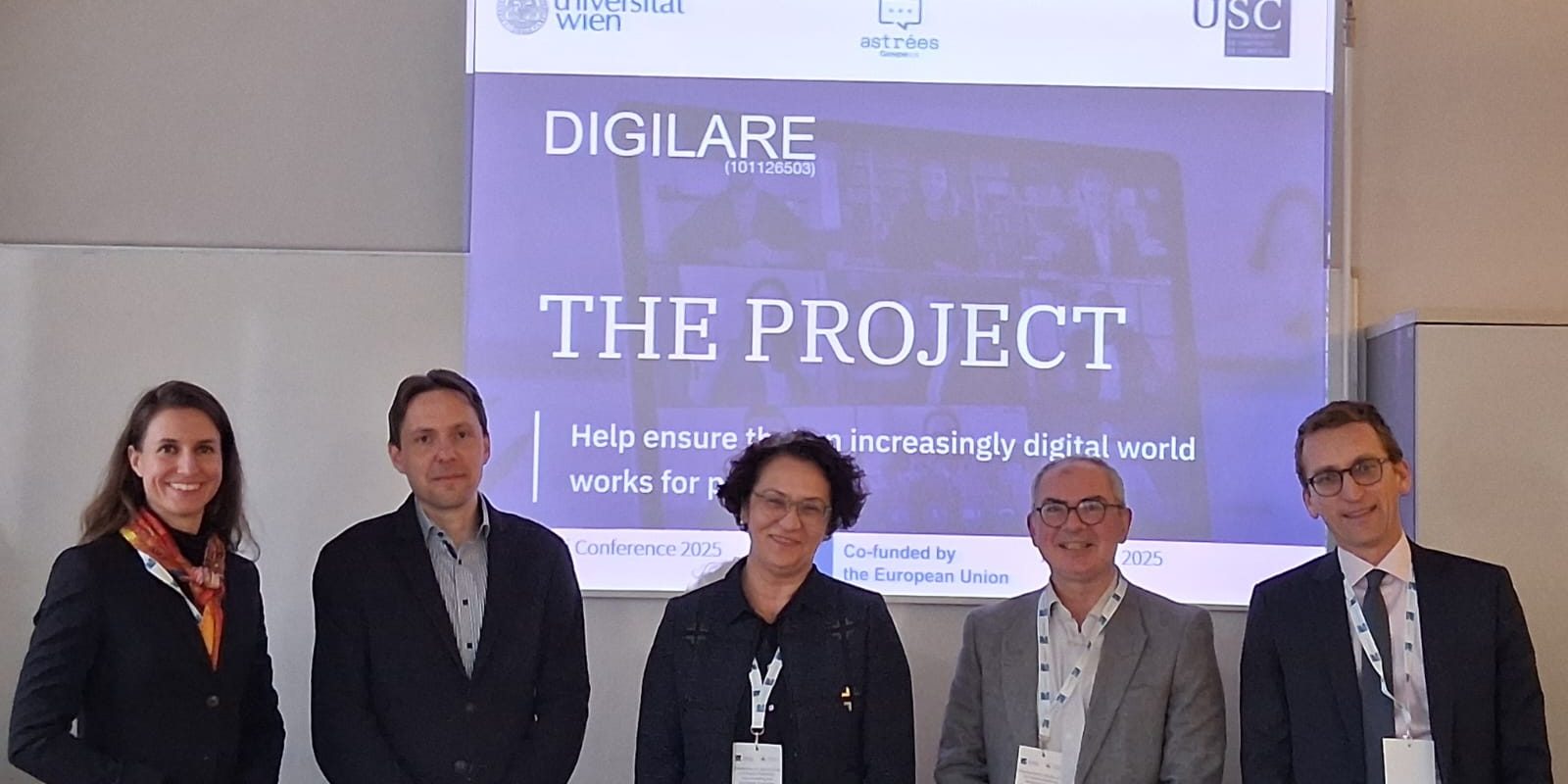XXII International Conference in Commemoration of Professor Marco Biagi
Members of DIGILARE team presented at the XXII International Conference in Commemoration of Professor Marco Biagi in Modena, Italy. The conference was held at the Fondazione Marco Biagi on March 19-20 2025 and this year’s conference theme was Employment in the Era of AI and Digital Platforms: Understanding and Regulating Transitions. Prof Elisabeth Brameshuber, Co-director of the DIGILARE project, introduced the project and the panel session: DIGILARE – Digitalisation of Industrial Labour Relations. Age-old values in a new digital world, setting out the main research goals and progress to date. Prof Brameshuber outlined some of the key research issues addressed, which arise from (cross-border) telework, including: the role of information and consultation rights as fundamental rights contributing to (workplace) democracy, and the respective perils to that when it comes to regulatory lacunae in cross-border telework situations; the potential of the use of digital tools in social partners’ representation activities; and the roles of management and worker representatives as gatekeepers to the introduction and use of digital surveillance and AI tools at the workplace.
Prof Kübra Dogan Yenisey looked at the first question, the nature of I&C rights as a fundamental collective right, and the complexity of determining the applicable laws in the context of cross-border telework, as well as the challenge of deciding the appropriate level of representation and representative bodies for I&C rights for teleworkers.
Prof Gábor Kártyás focused on the potential for worker representative bodies to increasingly use a significant variety of digital tools, including complex applications specifically designed to support the most important functions of unions. His paper also considered the (legal) risks inherent in the utilisation of such digital tools, and the extent to which EU, and Member State, law either stimulates or prohibits their use.
Prof Doherty considered the role of worker representatives when it comes to I&C on the introduction, and use, of algorithmic decision-making systems at the workplace. The paper considered the response to date in various Member States, as well as recent caselaw of the CJEU in the SCHUFA and Dun Broadstreet Austria decisions, where the Court focussed on the employer’s obligations in relation to providing meaningful and transparent information to workers, and the potential claim of trade secrets as a reason for not supplying information to worker representatives.
Finally, Prof Luca Ratti kicked-off a stimulating audience discussion, by placing the arguments of the three papers in the context of the provisions of the Platform Work Directive. The discussion focussed on the nature of I&C as a collective right, the future role of ‘organic, bottom-up’ trade unionism, and the role for experts in assisting Works Councils and other representative bodies in facing the AI challenge.
The debates will continue at the final conference of the DIGILARE project in September in Santiago de Compostela- join us there!

